Agathidium pulchrum: note the
horn on the left mandible of this male.
|
Agathidium pulchrum: note the |
Peck (2001) recorded 47 species of Agathidium in North America. A comprehensive revision of the genus by Miller and Wheeler (2005a) and Wheeler and Miller (2005) list 100 species from North and Central America, 28 of which are recorded from Canada. In the Atlantic Provinces there are at least nine species present, none of which are reported in Peck (1991) and only two of which are recorded in Wheeler and Miller (2005) and Miller and Wheeler (2005).
The nine species recorded in Atlantic Canada include:
All the above records are for Nova Scotia with the exception of A. hatchi for which there is a possible record from New Brunswick. Agathidium fawcettae has also been found in insular Newfoundland. No species of Agathidium have been found on Prince Edward Island.
Additionally one species of the newly described genus Gelae Miller and Wheeler has also been found in Nova Scotia:
The males of some species of Agathidium have very remarkable horns on their left mandibles (note the images of A. difforme and A. pulchrum) which they use in head-thrusting behaviour to dislodge rival males (Miller and Wheeler 2005b). They are also highly contractile and are able to roll themselves up into an almost complete sphere.
The following bionomic notes are based on Wheeler and Miller (2005): In common with members of the allied genus Anisotoma, members of the genus Agathidium live and feed on various species of plasmodial slime mould (Myxomycetes). There are about 500 species of these slime molds, more or less cosmopolitan in their distribution. They creep about under bark, between the lamellae of decaying wood, between decomposing leaves, and within matrices of decaying vegetation rather like giant amoebae, sometimes attaining a diameter of several feet!
Agathidium beetles are most frequently found and associated with the mature sporocarp stages of these slime-molds (which are what are more readily visible) but many of them may also feed on (and perhaps be obligate associates of) the plasmodia stages. Because plasmodia are very cryptic, occur in difficult habitats to investigate (i.e. between decomposing leaves), and can have an ephemeral existence, it is often difficult to observe their association with beetles in the wild. There has been some speculation that Agathidium may play a role in the dispersal of slime mold spores. Also, a number of species have also been found in association with Basidomycetes (mushrooms, bracket fungi, smuts, rusts, etc.) although it is not clear if the beetles are feeding on the mushrooms themselves or on epiphytic plasmodia that grow on the surfaces of decaying fungi. Further research is clearly warrented.
Eight of the eleven species found in Atlantic Canada are pictured below. The common and widely distributed species are A. depressum Fall and A. fawcettae Miller & Wheeler which have been found in many locations around the province. Most other species are currently known only from single localities. The only species known from Cape Breton is A. rubellum, although collecting for this group has been scant on the island. This genus has in general been little investigated in this region and it is expected that further fieldwork will add substantially to our knowledge about them.
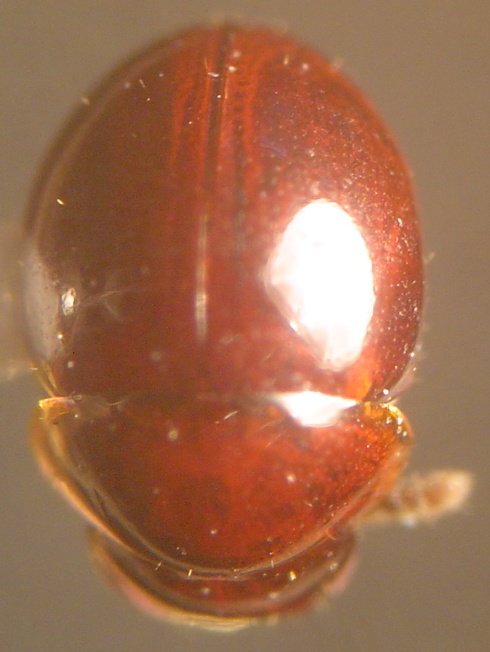
|
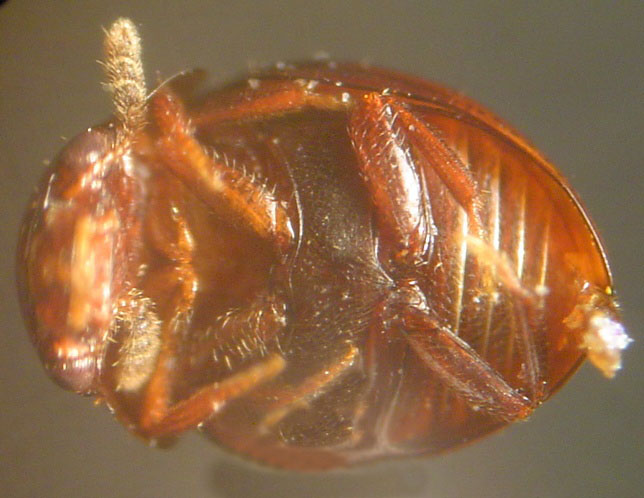
|
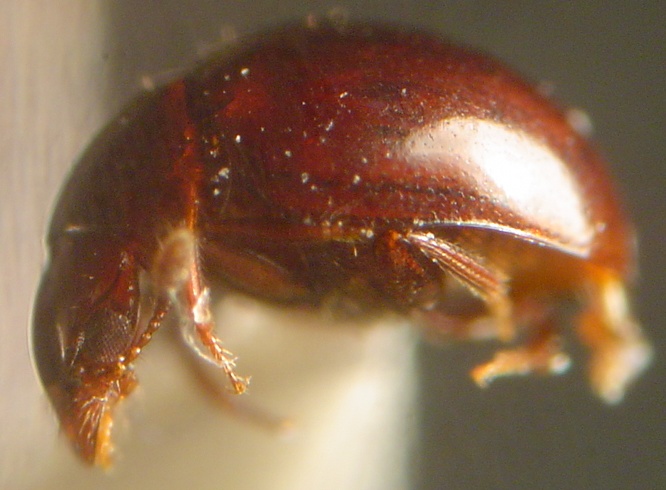
|
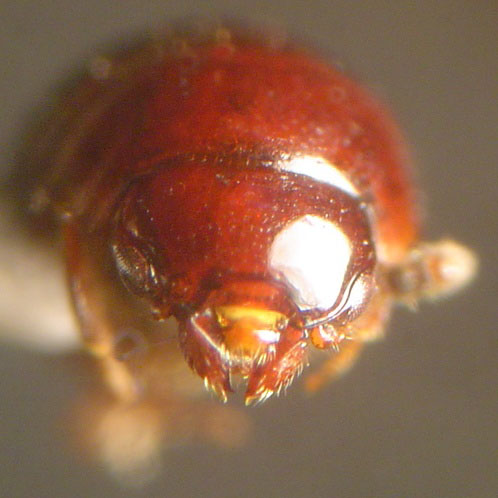
|
|
Agathidium mollinum |
Agathidium mollinum |
Agathidium mollinum |
Agathidium mollinum |
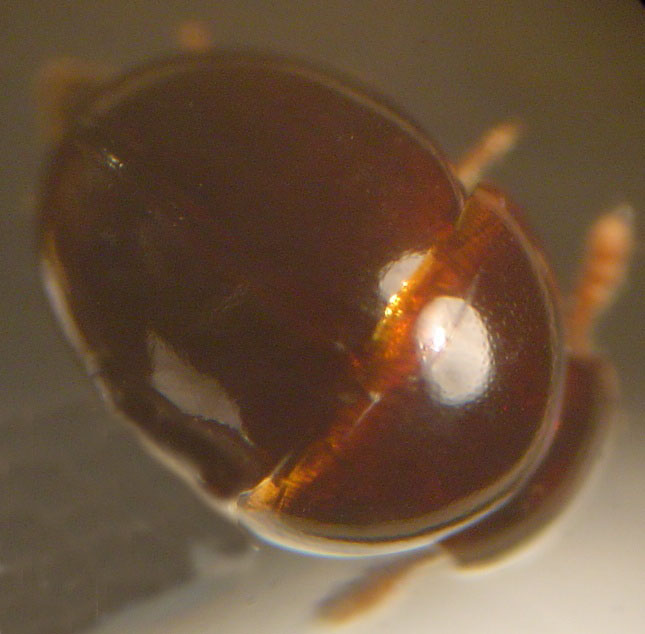
|
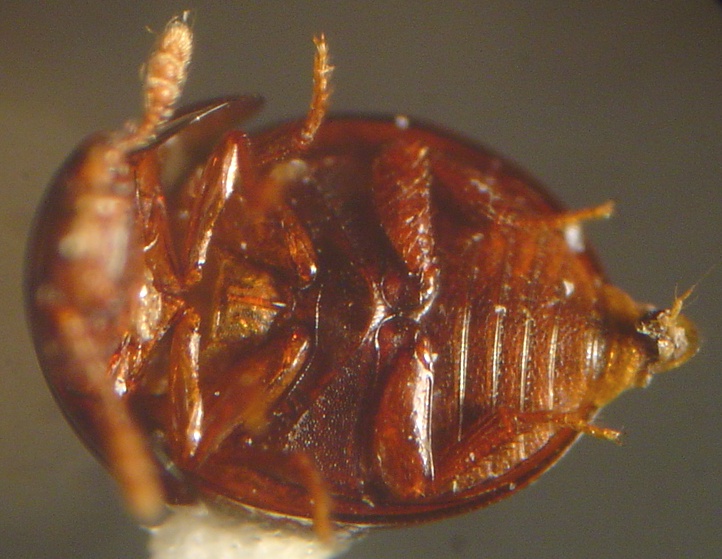
|
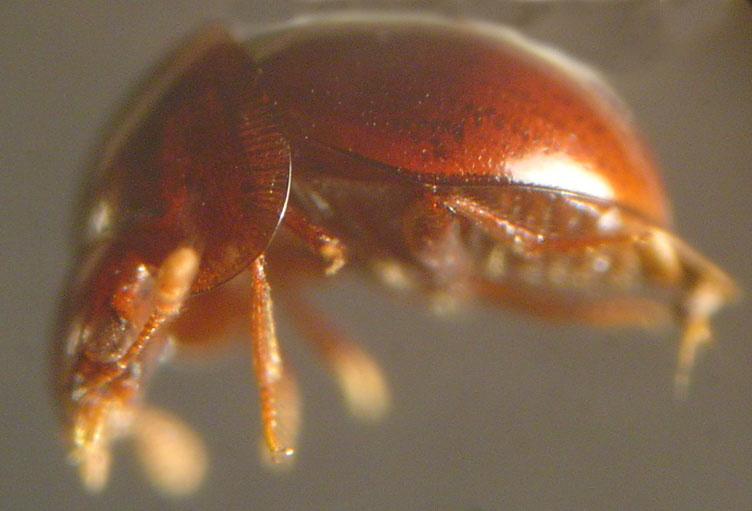
|
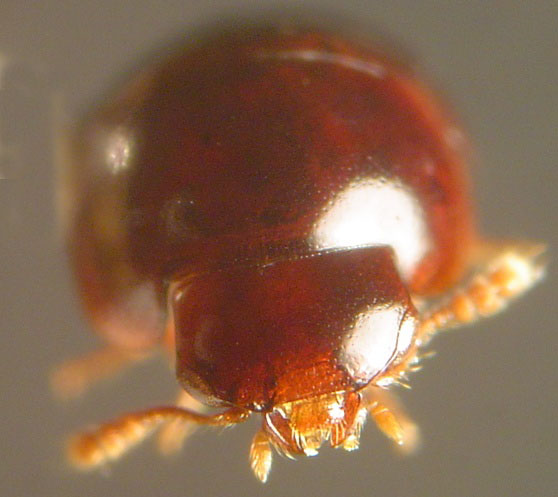
|
|
Agathidium depressum |
Agathidium depressum |
Agathidium depressum |
Agathidium depressum |
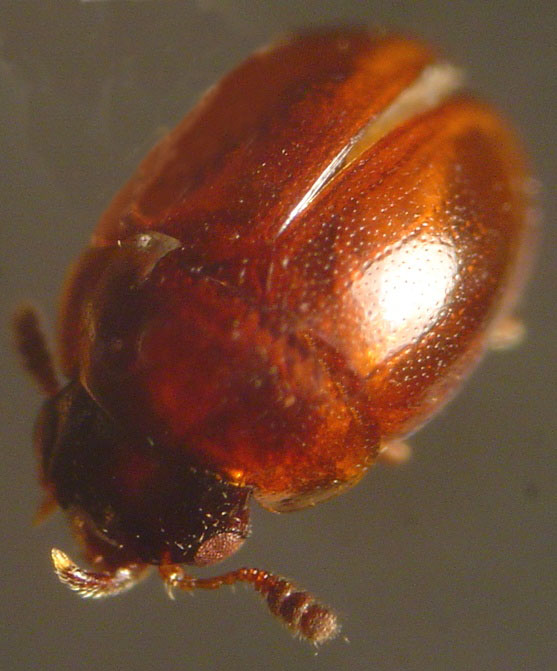
|
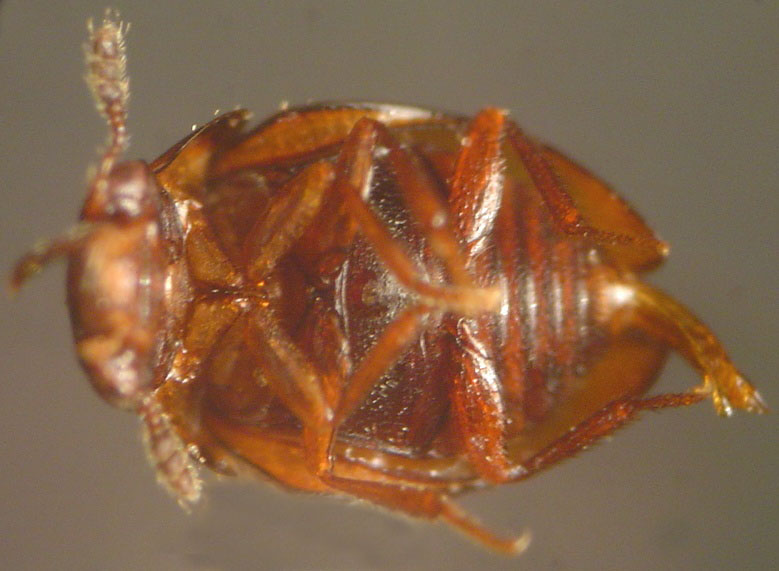
|
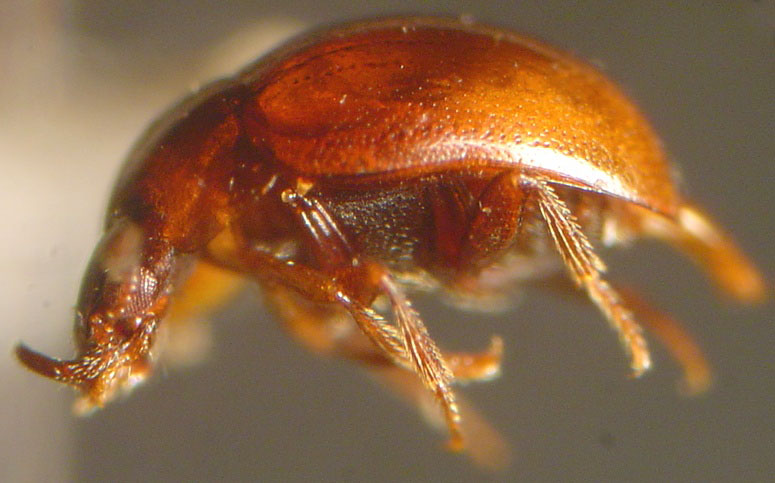
|
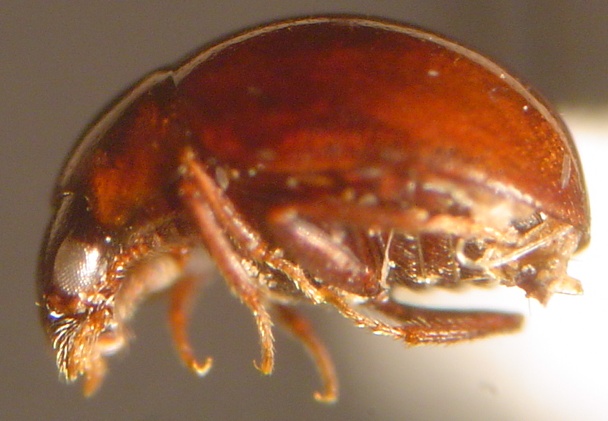
|
|
Agathidium difforme |
Agathidium difforme |
Agathidium difforme |
Agathidium difforme |
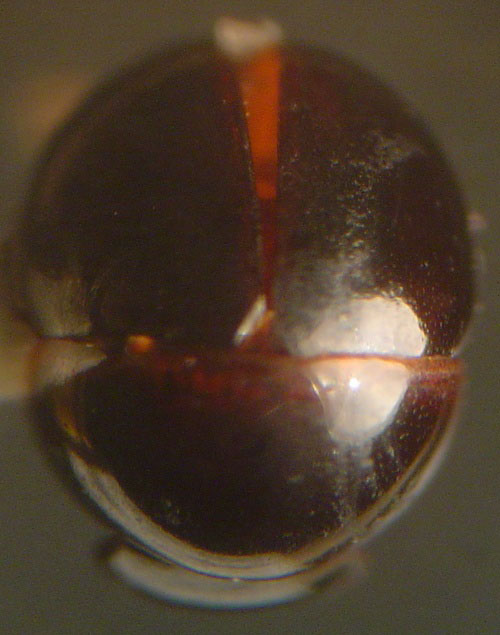
|
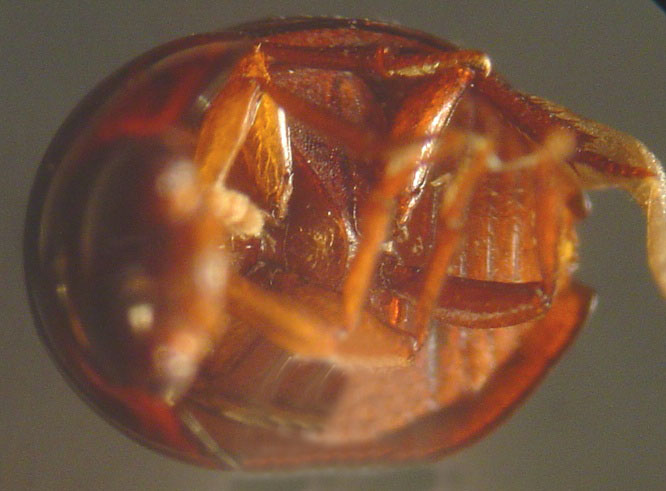
|
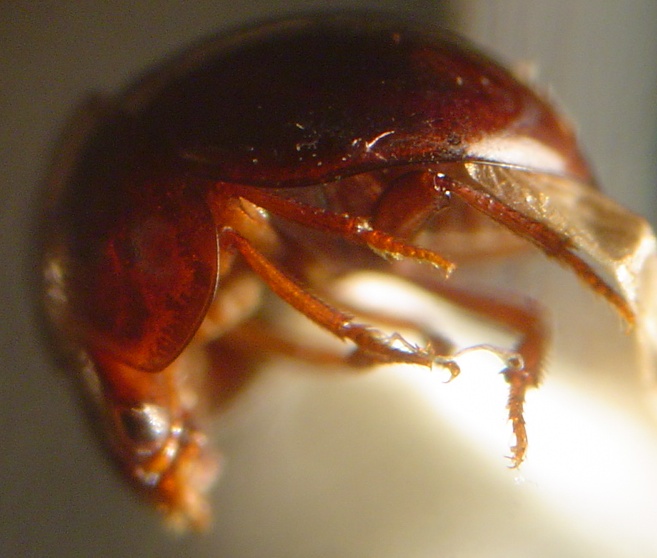
|
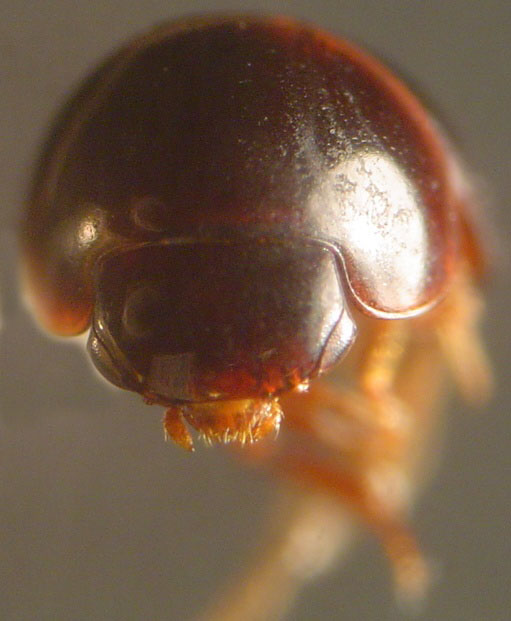
|
|
Agathidium fawcettae |
Agathidium fawcettae |
Agathidium fawcettae |
Agathidium fawcettae |
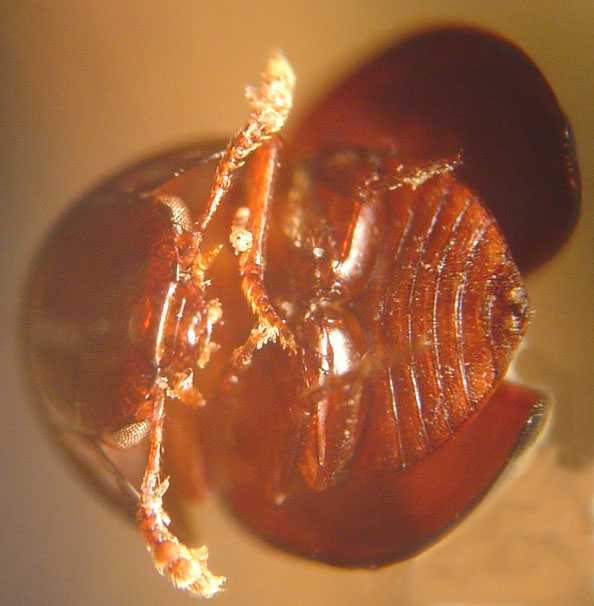
|
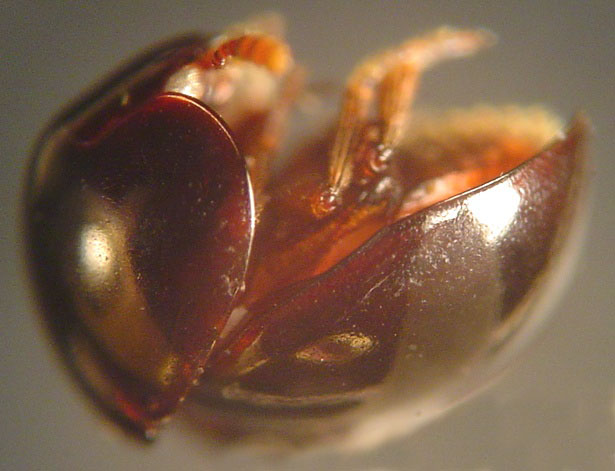
|
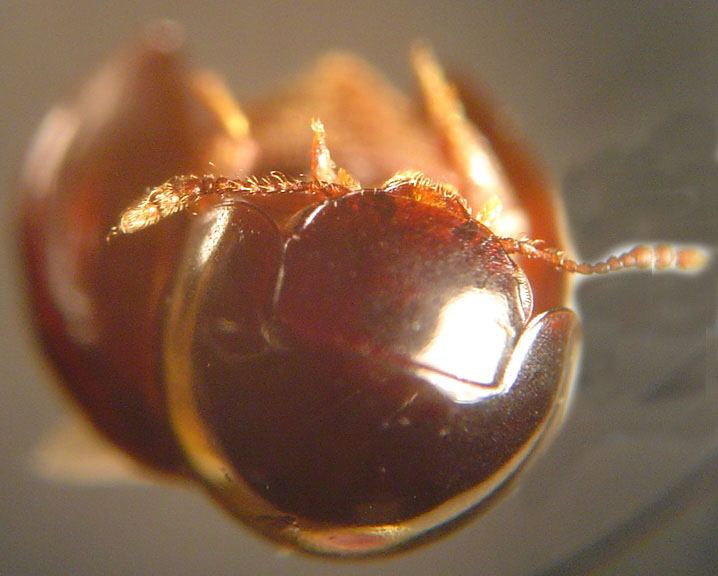
|
|
Agathidium oniscoides |
Agathidium oniscoides |
Agathidium oniscoides |
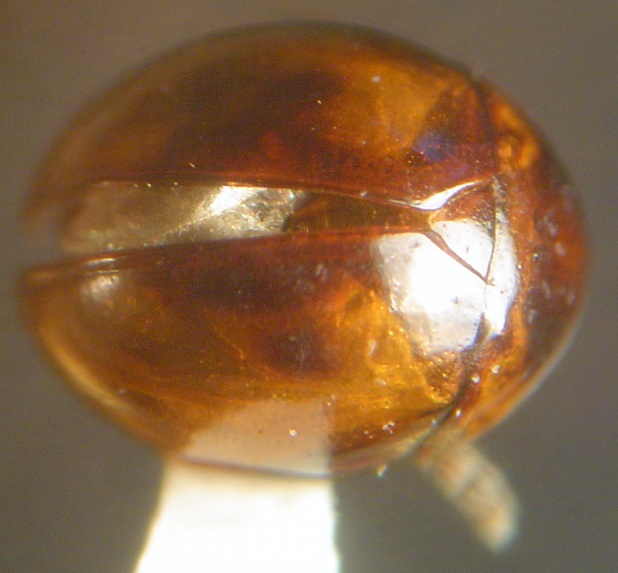
|
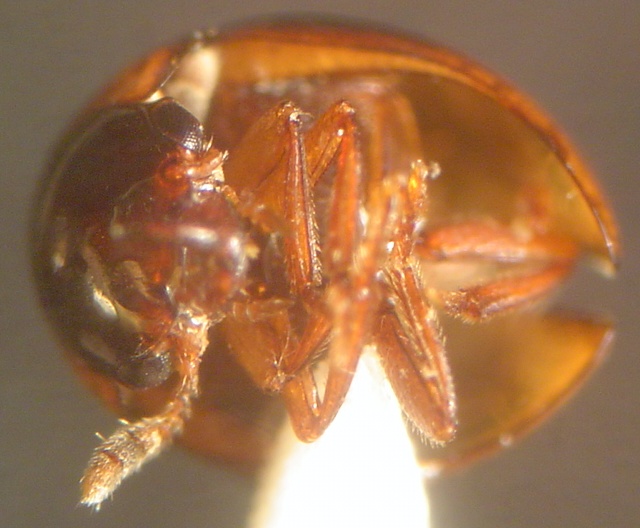
|
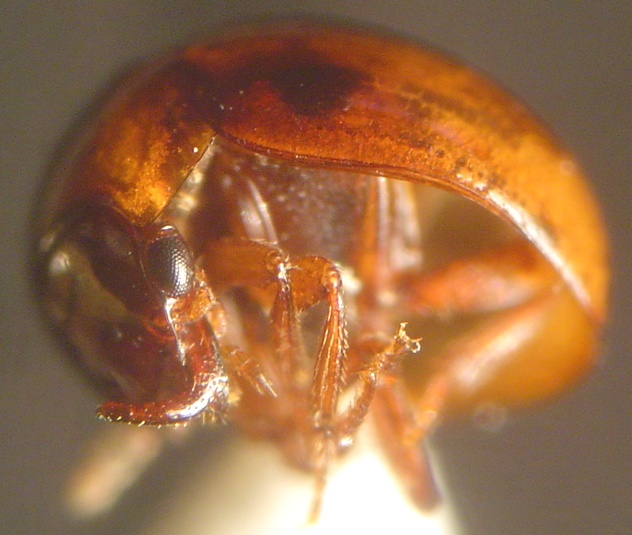
|
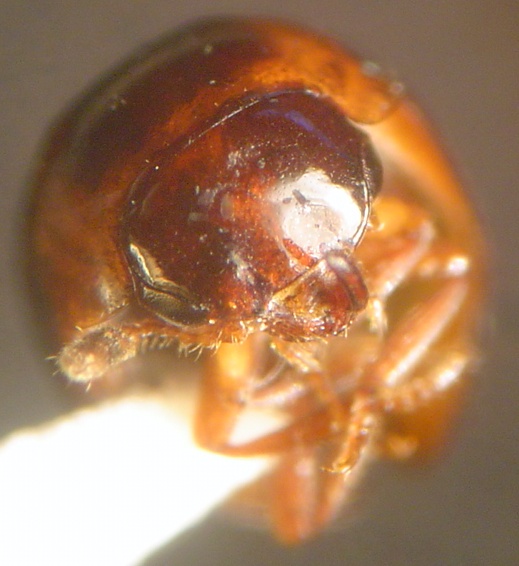
|
|
Agathidium pulchrum |
Agathidium pulchrum |
Agathidium pulchrum |
Agathidium pulchrum |
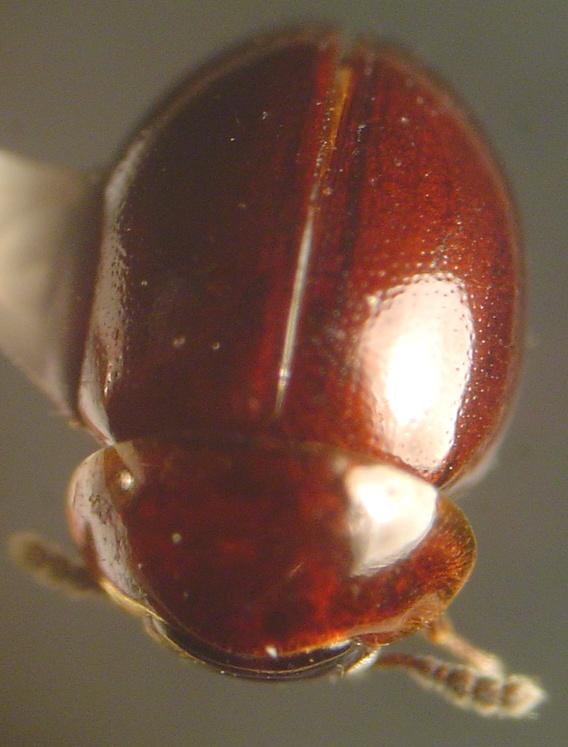
|
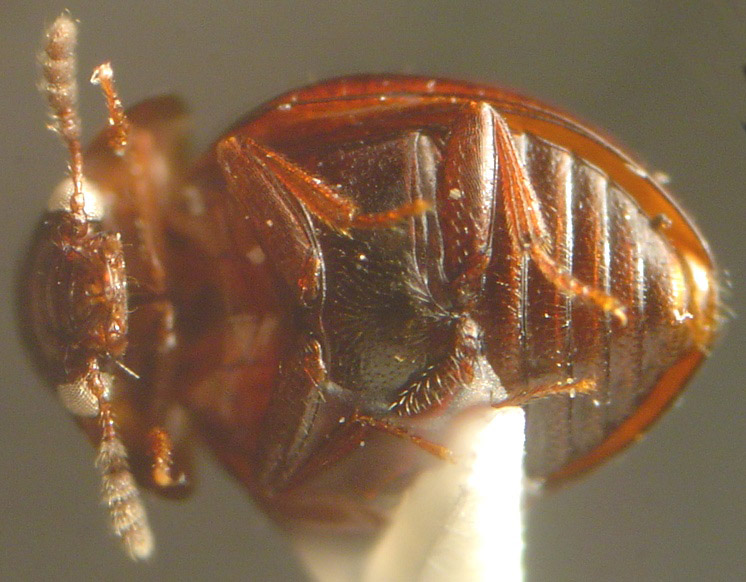
|
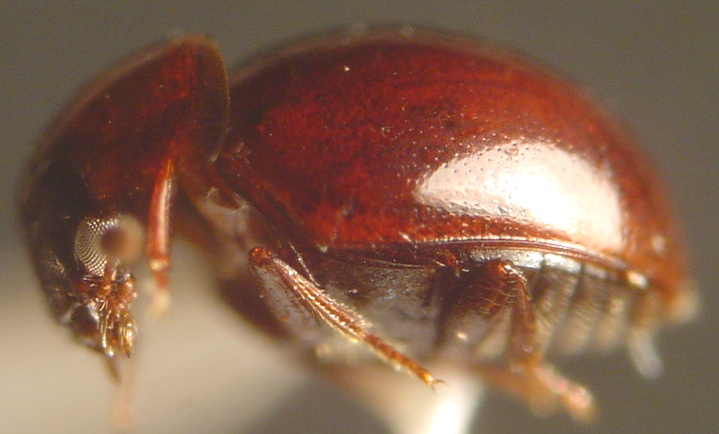
|
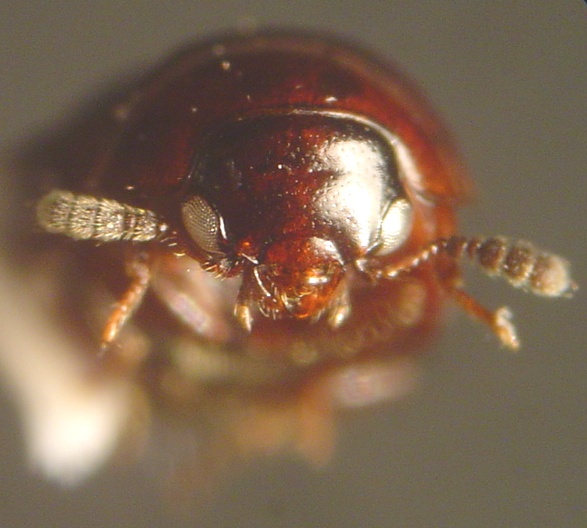
|
|
Agathidium repentinum |
Agathidium repentinum |
Agathidium repentinum |
Agathidium repentinum |
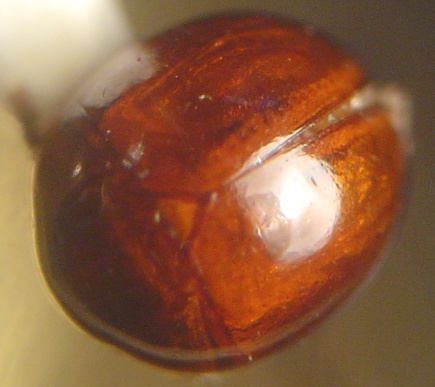
|
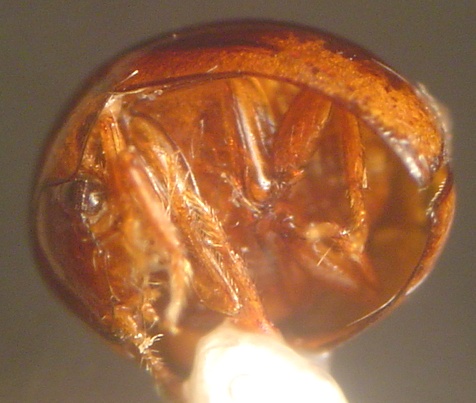
|
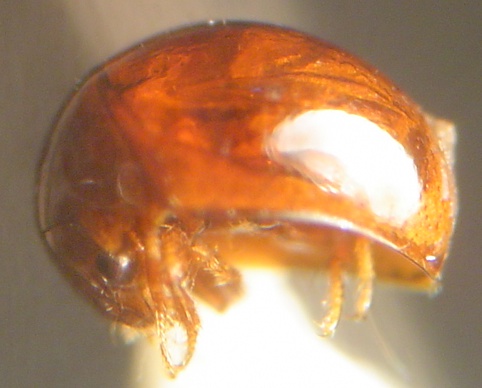
|
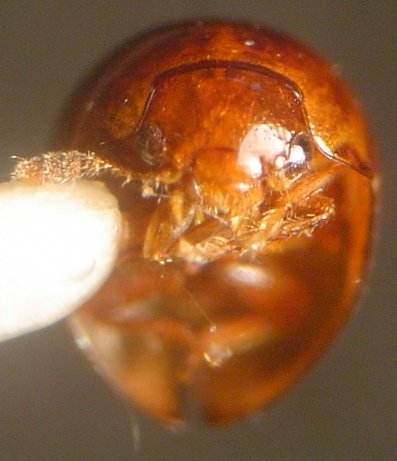
|
|
Gelae parile |
Gelae parile |
Gelae parile |
Gelae parile |
References
Fall, H.C. 1933. A review of the North American species of Agathidium (Coleoptera: Silphidae). Entomologica Americana, 14: 99-131.
Miller, K.B and Wheeler, Q.D. 2005a. Slime-mold beetles of the genus Agathidium Panzer in North and Central America: Part II. Coleoptera: Leiodidae. Bulletin of the American Museum of Natural History, 291. 1-167.
Miller, K.B and Wheeler, Q.D. 2005b. Asymmetrical male mandibular horns and mating behavior in Agathidium Panzer (Coleoptera: Leiodidae). Journal of Natural History, 39(10): 779-792.
Miller, K.B and Wheeler, Q.D. 2004. Two new genera of Agathidiini from the Nearctic and Neotropical regions (Coleoptera: Leiodidae). Coleopterists Bulletin, 58(4): 466-487.
Peck, S.B. 2002. Leiodidae Fleming, 1821. In: Arnett, R.H., Jr. and M.C. Thomas [Eds]. 2001. American Beetles, Volume 1: Archostemata, Myxophaga, Adephaga, Polyphaga: Staphyliniformia. CRC Press, Boca Raton, USA. pp. 250-258.
Peck, S.B. 1991. Leiodidae: small scavenger beetles In: Bousquet, Y. Checklist of Beetles of Canada and Alaska. Agriculture Canada Publication 1861/E. pp. 77-83.
Wheeler, Q.D. and Miller, K.B. 2005. Slime-mold beetles of the genus Agathidium Panzer in North and Central America: Part I. Coleoptera: Leiodidae. Bulletin of the American Museum of Natural History, 290: 1-95.
Many thanks to Quentin D. Wheeler (Arizona State University) for determinations of species in this genus and much additional assistance. Also to Stuart Peck and Joyce Cook (Carleton University) for the loan of specimens and other assistance and to Kelly Miller (University of New Mexico). Thanks to Philana Dollin (Dalhousie University) and DeLancey Bishop (North Mountain Old Forest Society) whose studies of saproxylic beetles contributed significantly to knowledge of this group in Nova Scotia.
(c) All rights reserved. Christopher Majka & Empty Mirrors Press. Last revised, September 2007.